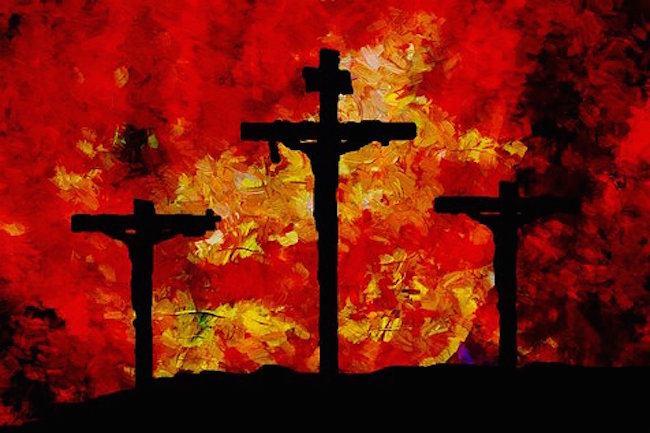Glorious Justice at the Cross BY for The Good Portion Books
How do you react when you go through trials you don’t deserve? What do you do when you witness the unfair treatment of another? In the current climate, what are you thinking about justice?
We often associate Jesus with mercy. A common theme in the Gospels is that he showed mercy to societies’ outcast. Tax collectors, those in poverty, and even lepers benefited from his compassion. We don’t have to linger long in the text to see examples of this aspect of Jesus’ character. But what does Jesus have to do with justice?
Scripture tells us Jesus is the “image of the invisible God” (Col. 1:15) and is the clearest revelation we have of the full character of God. Observing Jesus’ life, his death, and all that was accomplished in both pulls back the curtain so we can see clearly who God is and what he is like. In the last post, we considered that Jesus’ death on the cross revealed God’s holiness. But it revealed even more about God.
We know that because God is holy, he demands punishment for sin. Scripture refers to his demand for moral perfection as His righteousness and justice. These English words are how we generally translate the concept that God does not answer to any other authority for a code of conduct or moral standard. He does not answer to any lesser thing because he is the very definition of righteousness. No one and no thing is more morally pure than he is.
Paul explained to the Romans that ‘[Jesus’ death] was to show God’s righteousness, because in his divine forbearance he had passed over former sins’ (Rom. 3:25). In what sense had former sins been passed over prior to the cross? In the Old Testament, God showed a tremendous patience toward his sinful people. In scene after scene of the Old Testament, God did not deal with sin as it deserved. His people both corporately and individually disobeyed him, and yet God continued to spare them. At times his wrath would burn hot, and He would send a plague, famine, or neighboring army to punish the people for their wickedness, but the problem of sin was not comprehensively addressed on the scale which it warranted. Their sins were often (but not always) punished, but their Sin was not. ‘The times of ignorance God overlooked’ is how Paul explained God’s patience in addressing sin (Acts 17:30). In His mercy, God continued to allow His sinful people to live. Even the prophet Micah laments the wickedness of the people and asks the legitimate question, ‘Who is a God like you, pardoning iniquity and passing over transgression…?’ (Micah 7:18). In praise the Psalmist repeats this truth about God, ‘He does not deal with us according to our sins, nor repay us according to our iniquities’ (Ps. 103:10). These questions highlight God’s mercy, but how can a God who doesn’t punish sin be just?




